One Man’s Journey to Study Go in China Still Resonates with Audiences over Ten Years Later
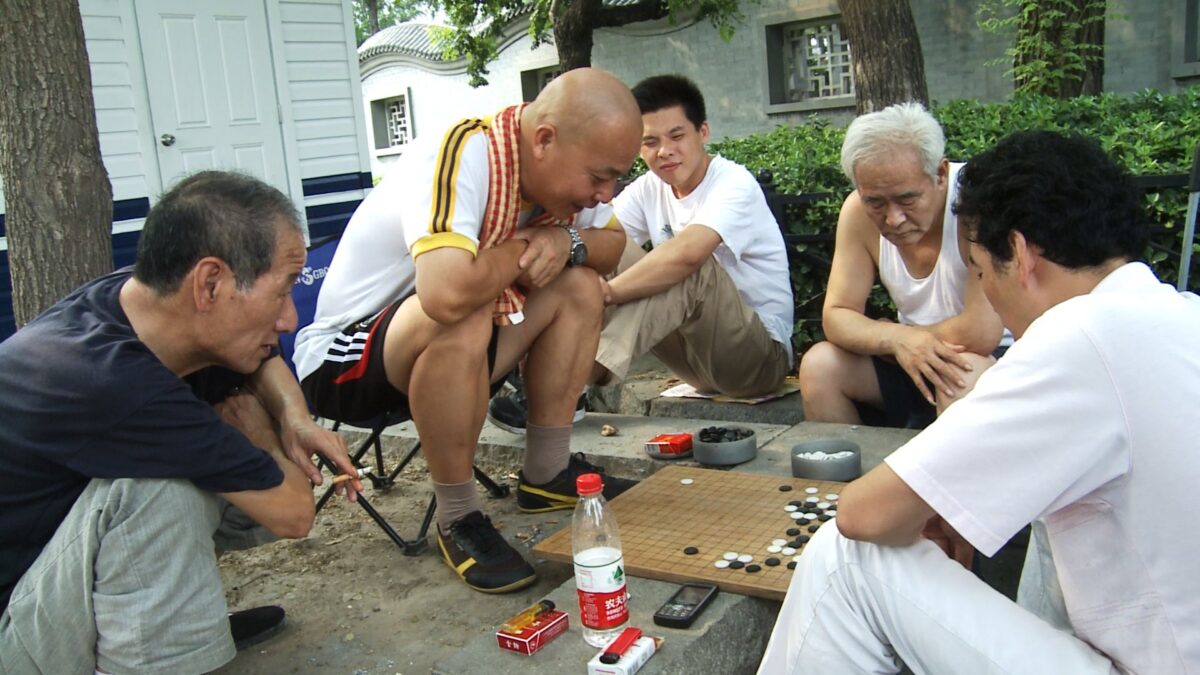
As a Go enthusiast (a more polite word than casual), I spend many hours consuming Go culture (Twitch, YouTube, books, articles, etc.), rather than painstakingly studying joseki or reviewing games.
In my appetite for Go culture, I stumbled across the book “Go Nation: Chinese Masculinities and the game of Weiqi in China.” (Weiqi is the Chinese word for Go) The book sounded lengthy and somewhat inaccessible for a casual Go–sorry I mean–Go enthusiast, but the cover image of several young adults playing Go grabbed my attention.
It became apparent as I flipped through the first few pages, that the author wasn’t just a university professor who studied the historical and modern masculinity in China, but also a lover of the game.
I’m splitting my review of his book into several parts.
- Moskowitz’s journey playing Go in China.
- His studies on masculinity, elitism, and gender roles in Go.
- Moskowitz’s video documentary.
- An update to the AI section of the book.
- Life updates and final thoughts.
The Journey
Cue the “Rocky” music. Except, instead of montages of pushups, punch combinations, and a sweaty Italian man running up stairs–get ready for furrowed brows, genius ten-year-olds, and old men smoking cigarettes in a park.
This section of the book begins with his arrival in China, where he describes his experience studying Go for three weeks with ten-year-olds at the Wenbo School for children. This scene in the book is reminiscent of the documentary “The Surrounding Game,” where Will Lockhart goes to Korea to study Go with young children, and discovers how serious the study of the game is in other countries. Similar to Lockhart’s experience, Moskowitz played against children every single day. Humorously, he reminisces about his time in the school, where he quickly became one of the best students (much to his teacher’s delight) before being soundly defeated by a young prodigy he dubbed “Bobby Fischer’s reincarnated spirit in the Weiqi World.”
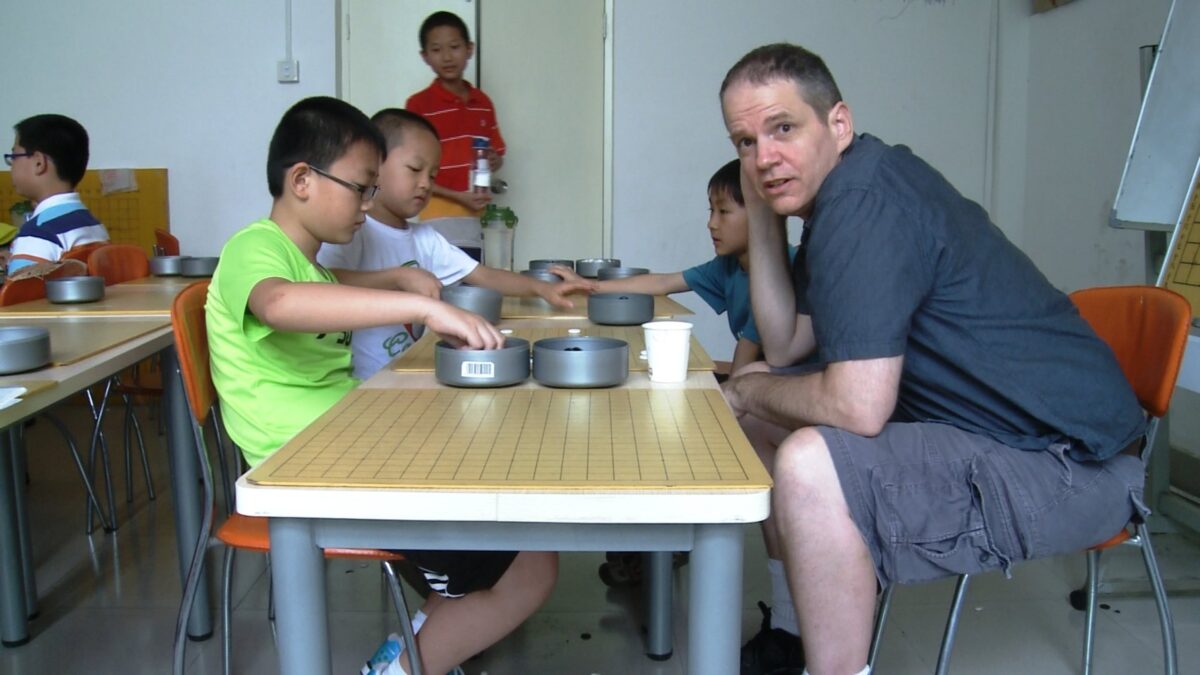
He tells another story where he plays Go in a local park, almost every day, with retired gentlemen. While many of the children study and compete for the opportunity to earn a living in the Go world, whether by teaching or by playing, he notes that all the players in the park were mostly “retired senior citizens” who were from the “working class.” While children often focused on the future, the older men focused on the present. Of “keeping busy and enjoying one’s later years.” As a Go player, the stories Moskowitz shares about playing, learning, and making connections, all without hardly ever speaking a word about one’s personal life, are relatable to most Go players.
Masculinity, Elitism, and Gender Roles
Besides his personal journey, the book is also a worthwhile read for his writings on Chinese masculinity and the role of gender in the world of Go. Moskowitz writes about the view of masculinity, and how it’s changed across Chinese history. One example from the book reads:
“An important figure in historical constructions of Chinese masculinity was the talented scholar (caizi). Talented scholars were usually depicted as frail, delicate, handsome, and possessing what in the West might be called a feminine beauty. As Chou Wah-Shen notes, in this context, ‘For a male to be soft, gentle, filial, and subtle is not a deprivation of his manhood but its fulfillment and completion.’” (pg. 50)
He goes in greater depth about how Chinese masculinity changes across several dynasties, as well as how Western values compare and contrast historically.
He also talked to many people in China about the lack of female representation in the competitive world of Go, and received a variety of answers, many of which speak to the heavily gendered stereotypes of male’s aptitude to succeed at Go. It’s clear that Moskowitz feels that the pessimism and lack of support towards females in Go, is a major reason for the lack of female players.
Last, I’ll paraphrase some of his thoughts on elitism, and its role in the history of Go. He writes it is a game that requires a massive time commitment, and has only ever become truly accessible to those with the time and money needed to achieve at the game. It has left the middle and lower classes out of the opportunity to truly study and play the game.
Other Sections of the Book and the Documentary
The book caters towards non-Go players by teaching the very basics of the game, including capturing, scoring, and even how to hold a stone, and one explanation behind the tradition. According to Hong Po, the CEO of the Ni Weiping school franchise, he explains that holding the stone between the middle and index finger goes beyond politeness.
“This is called, ‘The crane bows its head’ (he diantou). China has a bird called a crane. [He raises his hand as if he were holding a weiqi stone.] It is like a crane raising its head. Every time you place a stone on the board it is like the crane is lowering its head. [He lowers his hand like a crane bowing its head.]… This is the crane’s beak. Then it lowers its head and gently places the stone on the board. [He lowers his hand again.] In Chinese culture this is a very beautiful thing. So when you play Weiqi, every time you place a stone on the board you are demonstrating your respect for your opponent.” (pg. 79)
In addition to the book, Moskowitz produced a documentary of his time in China that includes interviews with many of the people from his book, as well as footage from his journey. I highly recommend you check this out. While not a big production like “AlphaGo” or “The Surrounding Game,” the documentary “Weiqi Wonders: Conversations of the Game of Go in China” is a worthwhile watch and found by a quick YouTube search.
An Updated Take on AI
In 2013, he stated that, “Though the computer program Deep Blue defeated world chess champion Garry Kasparov in 1997, computer programmers agree that they are not even close to developing software that can compete with a professional Weiqi player.” (pg. 30)
2014…
2015…
2016… AlphaGo enters the scene like Killmonger challenging T’challa (Lee Sedol) for the throne in “Black Panther” and screaming over T’challa’s fallen body “Is this your king?”
All jokes aside, Moskowitz’s book, published in 2013, arrived about three years before the events of Lee Sedol vs. AlphaGo. Obviously, he couldn’t have foreseen the AI revolution that was about to change the game of Go forever. I reached out to Moskowitz for his current thoughts on AI and Go. Here’s what he said:
“Of course I watched the Lee Sedol games with great interest like the rest of us and was duly impressed, and a bit shocked, by the results. At the time I had no idea about the innovative computer programming that was teaching AI to randomly think of moves and then play them out logically in its head, so to speak, rather than relying on brute force/memorization like the chess programs had been doing. As a science-fiction fan I can’t help but think that AlphaGo, as well as self-driving cars, will be the ancestors to sentient AI in the future, in that they are both training computers to think in ways that are very similar to the ways that we think things out. Whether that will be a good thing or a bad thing only time will tell, but for now we can see a shift in relying on AI to train and improve that has long been familiar to the chess world but is relatively new in Go circles.”
— Marc Moskowitz (interview with Jae Matson)
Life Updates and Final Thoughts
In Moskowitz’s first journey to China, he often played with “Mr. Xu, a sixty-eight-year-old man” every day for several games a day. Mr. Xu often teased and joked with Moskowitz, but his playing style was rapid, aggressive, and sometimes careless. “Mr. Xu and I had wild, dramatic, all-or-nothing games that were the prevalent style of play at the park, and I loved every minute of it. (pg. 124)

He writes that it was normal for members to stop showing up, and with the advanced age of the group, the absences took on a “particularly ominous significance.” (pg. 124) In fact, when Moskowitz returned to China the second time to continue working on the book, he could not find Mr. Xu at the park.
As a closing part of my interview, I asked if he had any updates on his book. He stated that he still plays online every single day, but hasn’t been back to China since he did the research, and has lost touch with most of the people in his book.
He did share that the last day he went to the park, he brought a couple cartons of cigarettes to hand out as a ‘thank you’ for all the time spent together.
“Although the park regulars rarely spoke about matters beyond commenting on the games that were being played, there was an exceptionally strong sense of camaraderie. Many of them had seen each other almost every day for ten years. Though admittedly more sedate, their interactions were not unlike the behavior of sports fans. There was of course no alcohol or shouting, but one witnessed the same enthusiasm of several people watching a masterful move. Inevitably, such moves were met with enthusiastic comments from several onlookers, and one could see their shared disappointment when someone missed an opportunity to deal his opponent a crushing blow.” (pg.126)
One can’t read this chapter in 2022 and not be reminded of “The Queen’s Gambit, where (SPOILER ALERT) the series ends with Anya Taylor-Joy’s character sitting down for a game of Chess with an older gentleman in a park. “The Queen’s Gambit,” was originally published as a novel in 1983, but later popularized in the 2020 Netflix show. Both park scenes, both from “The Queen’s Gambit” and from Moskowitz’s 2013 book, capture the essence of Go and Chess that is often forgotten in the pursuit of greatness and self-improvement. The heart of the game of Go is to enjoy and to share, whether played beautifully or brutally, and whether young or old.
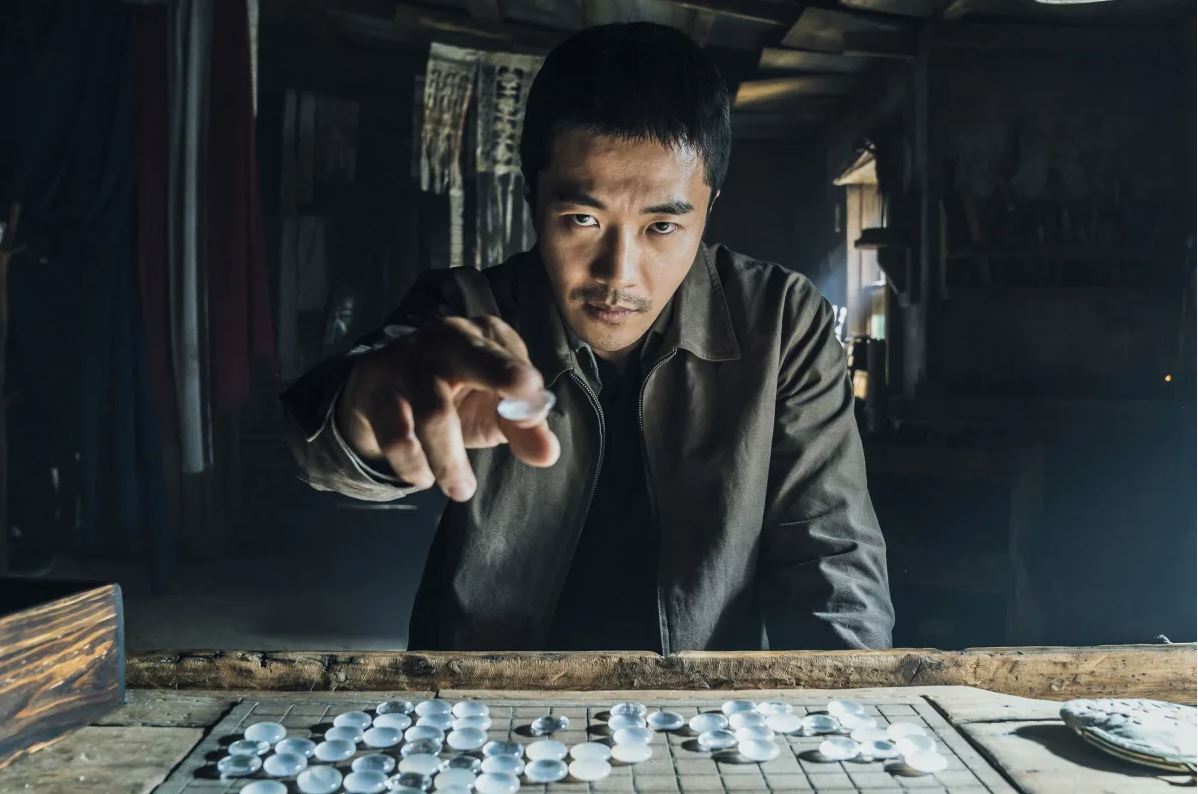
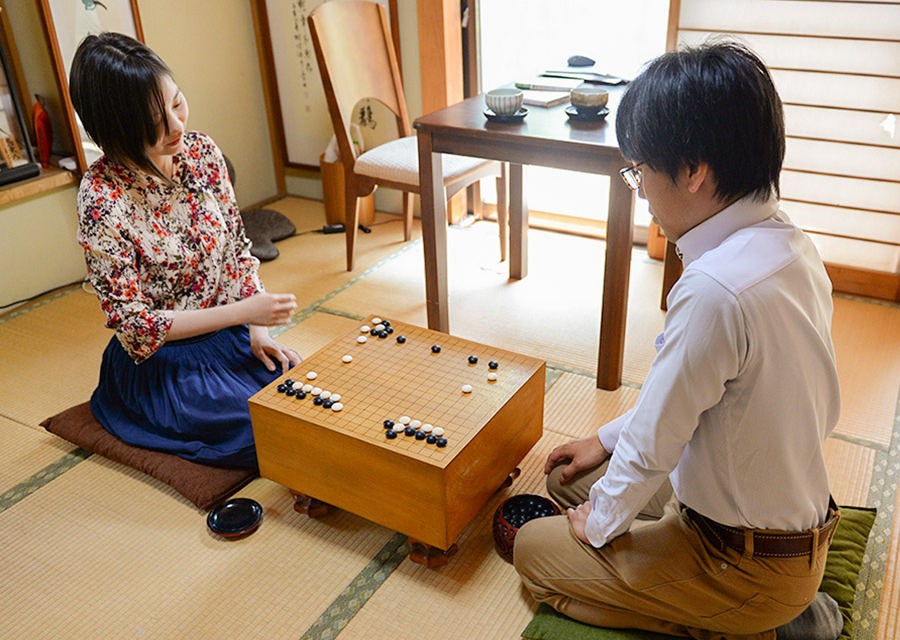
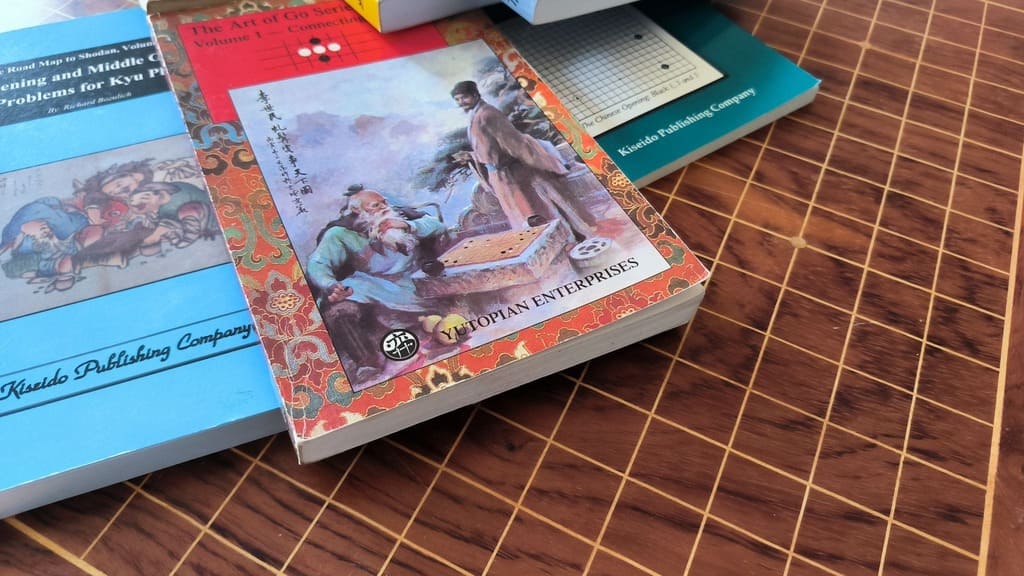
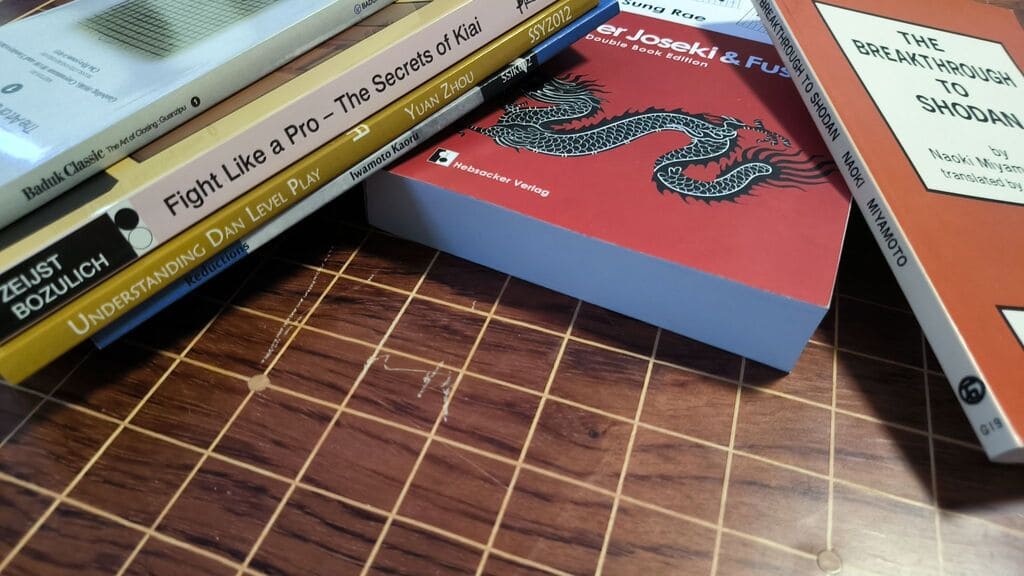
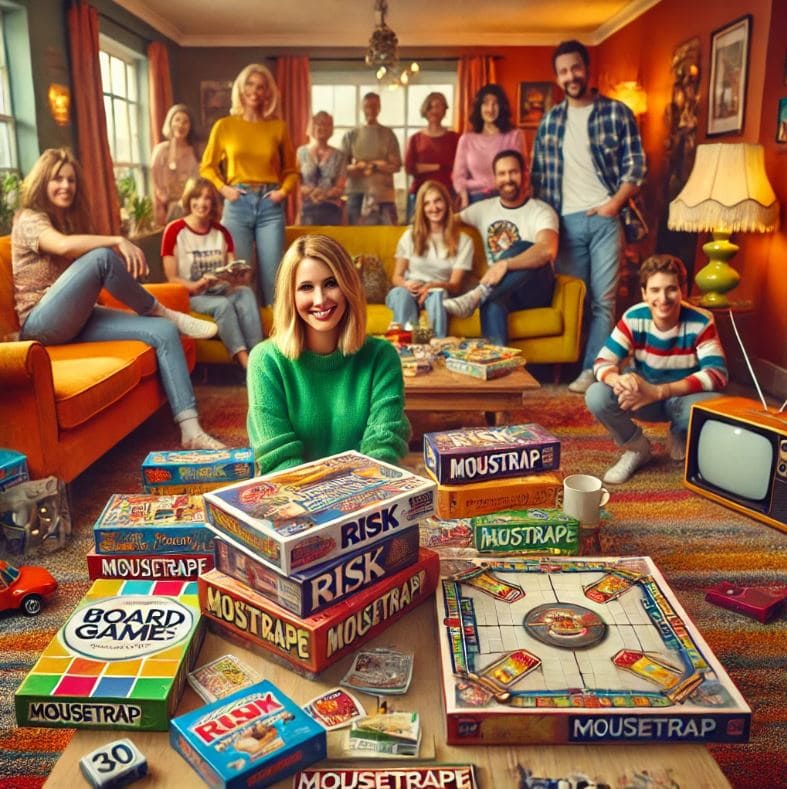
Thank you for this article 😀